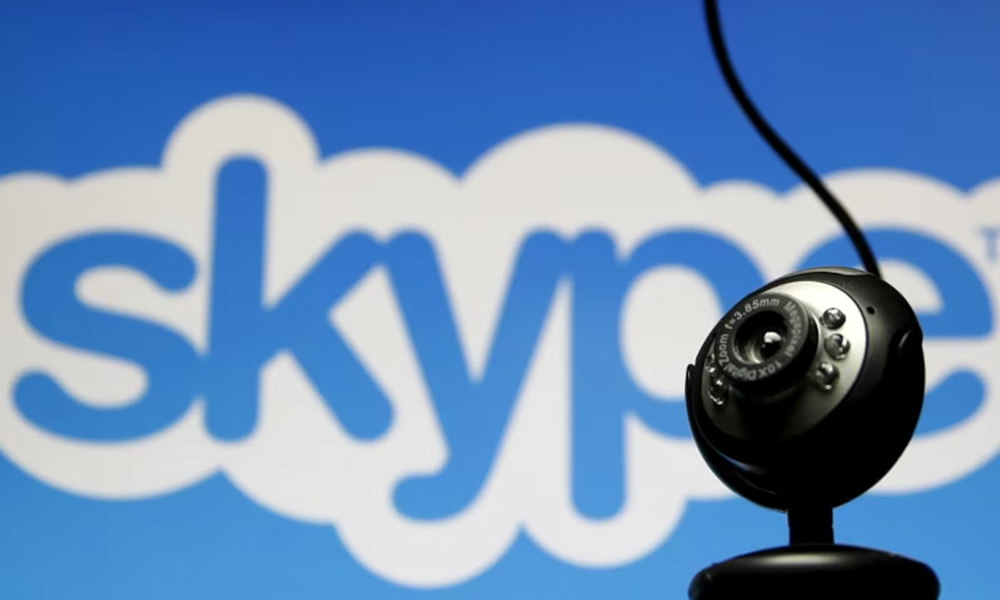Science & Technology
US targets Russia’s technology sector in fresh sanctions

The United States on Thursday imposed fresh sanctions on Russia, targeting the technology sector, a sanctions evasion network and what it called “malicious cyber actors” while paving the way to act against additional sectors in response to President Vladimir Putin’s assault on Ukraine.
“We will continue to target Putin’s war machine with sanctions from every angle, until this senseless war of choice is over,” Treasury Secretary Janet Yellen said in a statement.
The Treasury Department imposed sanctions on 21 entities and 13 people, including Joint Stock Company Mikron, Russia’s largest chipmaker and manufacturer and exporter of microelectronics.
Washington also determined that three new sectors in the Russian economy are subject to sanctions under an existing executive order, allowing the United States to slap punitive measures on any person or entity operating in the aerospace, marine and electronics sectors.
Thursday’s actions freeze any US assets of those targeted and generally bar Americans from dealing with them.
Those targeted include Moscow-based Serniya Engineering and equipment maker Sertal, both of which the Treasury Department accused of working to illicitly procure equipment and technology for Russia’s defense sector that can double for civilian use.
The Treasury imposed sanctions on the two companies alongside other firms and people, accusing them of being part of a sanctions evasion network.
The Russian embassy in Washington and Mikron did not immediately respond to requests for comment on the measures. Serniya and Sertal could not immediately be reached for comment.
Washington has imposed sanctions several times over the five weeks since Russia launched the biggest assault on a European state since World War Two. Moscow calls it a “special operation.”
Western nations will try to find new grounds for sanctions on Russia, Putin said on Thursday, adding that his country must aim to retain jobs and to create new ones.
Science & Technology
Saudi crown prince launches new company to develop AI technologies
U.S. President Donald Trump travels to Saudi Arabia this week, the first stop on his Gulf tour, and AI is expected to be a major discussion point during Tuesday’s joint Saudi-U.S. investment forum in Riyadh.

Crown Prince Mohammed bin Salman launched a new company to develop and manage artificial intelligence technologies in Saudi Arabia on Monday, a top priority of its economic diversification drive, Reuters reported.
U.S. President Donald Trump travels to Saudi Arabia this week, the first stop on his Gulf tour, and AI is expected to be a major discussion point during Tuesday’s joint Saudi-U.S. investment forum in Riyadh.
The kingdom, the world’s biggest crude exporter, is undergoing a significant economic and social transformation under its Vision 2030 programme which aims to wean the economy off its oil dependency.
It wants to develop AI technology and infrastructure – including data centres – and has ambitions to establish the kingdom as a global centre for AI, pitching itself as a prospective hub for AI activity outside the United States, read the report.
Chaired by bin Salman, Saudi Arabia’s de facto leader, the new company, Humain, will operate under the Public Investment Fund, and offer AI services and products, including data centres, AI infrastructure, cloud capabilities and advanced AI models, the state news agency reported.
Earlier this year, cloud software seller Salesforce (CRM.N), said that it planned to invest $500 million in Saudi Arabia related to artificial intelligence.
Science & Technology
Skype ends operations after 22 years of service
Microsoft acquired Skype in 2011 and says the decision is part of a strategy to focus on its other platform, Microsoft Teams.

Skype officially shut down on Monday. The closure comes after nearly 22 years in operation, during which Skype became known for making international voice and video calls accessible and affordable for millions of people worldwide.
Microsoft acquired Skype in 2011 and says the decision is part of a strategy to focus on its other platform, Microsoft Teams.
Launched in 2003, Skype quickly became a revolutionary tool for free voice and video calls over the internet, amassing more than 300 million monthly users at its peak in the mid-2010s. The free platform changed how people communicated across borders, long before Zoom or FaceTime.
In 2011, Microsoft acquired Skype for $8.5bn, aiming to make it a central part of its communications strategy. But as competitors like WhatsApp, Zoom, and eventually Microsoft’s own Teams gained traction, Skype’s popularity faded.
On February 28, Microsoft said it would retire Skype on May 5 to streamline its services and prioritise Teams for communication and collaboration.
Microsoft has urged users to transition to Teams by visiting skype.com and utilising the “Start using Teams” feature. All Skype chats and contacts will remain accessible through Teams using the same login credentials.
Science & Technology
Apple moving to make most iPhones for US in India rather than China

Apple aims to make most of its iPhones sold in the United States at factories in India by the end of 2026, and is speeding up those plans to navigate potentially higher tariffs in China, its main manufacturing base, Reuters reported.
The U.S. tech giant is holding urgent talks with contract manufacturers Foxconn and Tata to achieve that goal, the person, who declined to be named as the planning process is confidential, said on Friday.
Apple and Foxconn did not immediately respond to requests for comment, while Tata declined to comment.
Apple sells over 60 million iPhones in the U.S. annually with roughly 80% of them made in China currently.
Prime Minister Narendra Modi has in recent years promoted India as a smartphone manufacturing hub, but higher duties on importing mobile phone parts compared to many other countries means it is still expensive for companies to produce in India.
For iPhones, manufacturing costs in India are 5-8% higher than in China, with the difference rising to as much as 10% in some cases, the source said.
Apple has already stepped up production in India to beat U.S. President Donald Trump’s tariffs, shipping some 600 tons of iPhones worth $2 billion to the United States in March. The shipments from India marked a record for both its contractors Tata and Foxconn, with the latter alone accounting for smartphones worth $1.3 billion, Reuters reported last week.
In April, the U.S. administration imposed 26% duties on imports from India, much lower than the more than 100% China was facing at the time. Washington has since paused most duties for three months, except for China.
Trump’s administration has since signalled openness to de-escalating the trade war between the world’s two largest economies that has raised fears of recession.
The Financial Times first reported about Apple’s plan on Friday.
As Apple diversifies its manufacturing beyond China, it has positioned India for a critical role. Foxconn and Tata, its two main suppliers there, have three factories in all, with two more being built.
-

 Latest News4 days ago
Latest News4 days agoPakistan says India launched attack on Afghanistan, India denies
-

 World4 days ago
World4 days agoUS offers to help India and Pakistan start talks, G7 also urges dialogue
-

 Sport4 days ago
Sport4 days agoFIFA OKs creation of Afghanistan women’s refugee team
-

 Regional4 days ago
Regional4 days agoPakistan says it has launched military offensive against India
-

 World4 days ago
World4 days agoTrump says India, Pakistan agree to ‘full and immediate ceasefire’
-

 Regional3 days ago
Regional3 days agoExplosions reported after India and Pakistan agree to ceasefire
-

 Regional2 days ago
Regional2 days agoIndian air force says losses are part of combat but all pilots back home
-

 Tahawol4 days ago
Tahawol4 days agoTahawol: Status of Afghanistan’s infrastructure projects reviewed























